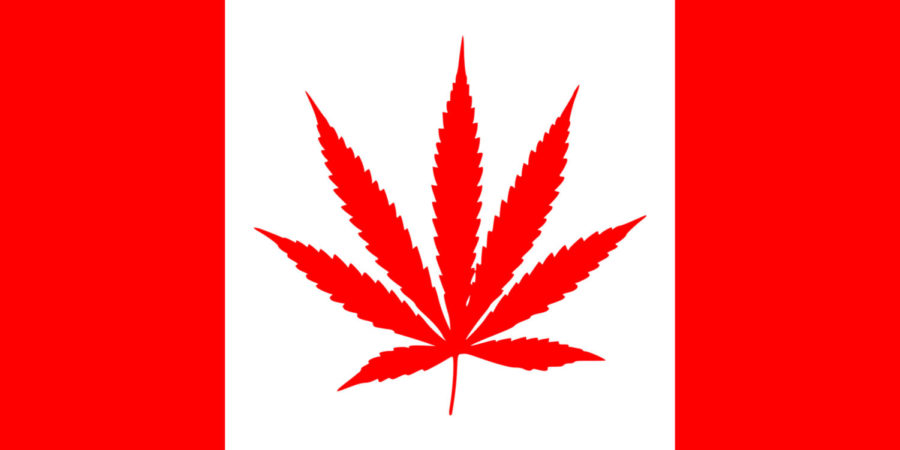Editorial: Riding high: United States should follow Canada’s pot legalization
October 17, 2018
Canada’s always ranked high on social freedom, but since Wednesday, the country’s also been high on marijuana. The United States’ northern neighbor just became the second country in the world to legalize cannabis — and its citizens have reacted enthusiastically.
“We know the world is watching,” Kelly Coulter, a small-scale farmer in British Columbia, said. “We hope other countries will see what’s happening here and replicate it.”
The United States absolutely should replicate Canada’s decision. A number of states have voted to decriminalize the drug — but that’s not enough. Nearly a quarter of Americans regularly smoke weed, so to ensure all Americans have safe, consistent access to the drug, it needs to be legalized and regulated at the federal level.
Unfortunately, Attorney General Jeff Sessions remains firmly opposed — he believes marijuana is just as harmful as heroin, a powerful opioid.
“I reject the idea that America will be a better place if marijuana is sold in every corner store,” Sessions said while speaking with police officers in 2017. “And I am astonished to hear people suggest that we can solve our heroin crisis by legalizing marijuana — so people can trade one life-wrecking dependency for another that’s only slightly less awful.”
Under federal law, which Session supports, cannabis is deemed just as dangerous as heroin, with high potential for abuse and zero practicality in medicine. But this is ludicrous — it’s impossible to overdose on marijuana, but nearly 13,000 Americans die every year from heroin. And more than 3 million Americans use medical marijuana to treat various ailments.
In fact, legalizing marijuana nationwide is proven to make citizens safer. Uruguay became the first country in the world to legalize marijuana in 2017, and since then, it’s seen a 20-percent reduction in drug-related crime. In the United States, nearly half a million people were admitted to the emergency room in 2011 for consuming marijuana laced with harmful substances like PCP. If marijuana was legalized and regulated on a federal level, we’d have far fewer cases like this — and we could drastically reduce government spending, too.
The United States spends more than $50 million per year locking up more than a million people for mere possession of marijuana. But Canada’s putting a $1 per gram excise tax on consumers. If the United States implemented a similar policy, we could cut the cost of imprisoning people for an insignificant offense and rake in millions per year in taxes.
“We don’t know the size of the marijuana market right now,” Carl Davis, senior analyst at the Institute on Taxation and Economic Policy told The Huffington Post. “But we do know that legalization would lead to a positive revenue impact on the income and sales tax side.”
While 46 states have legalized medicinal marijuana, possessing marijuana in any form is still a federal crime. Violators won’t receive prison time but they can lose access to federal services, such as subsidized student loans and housing. Only legalizing cannabis on a federal level can solve these complicated legal discrepancies, as well as grant greater freedom to Americans overall.
Canada set a great example through legalizing marijuana. The United States should follow suit — we need to weed out oppressive drug laws.



